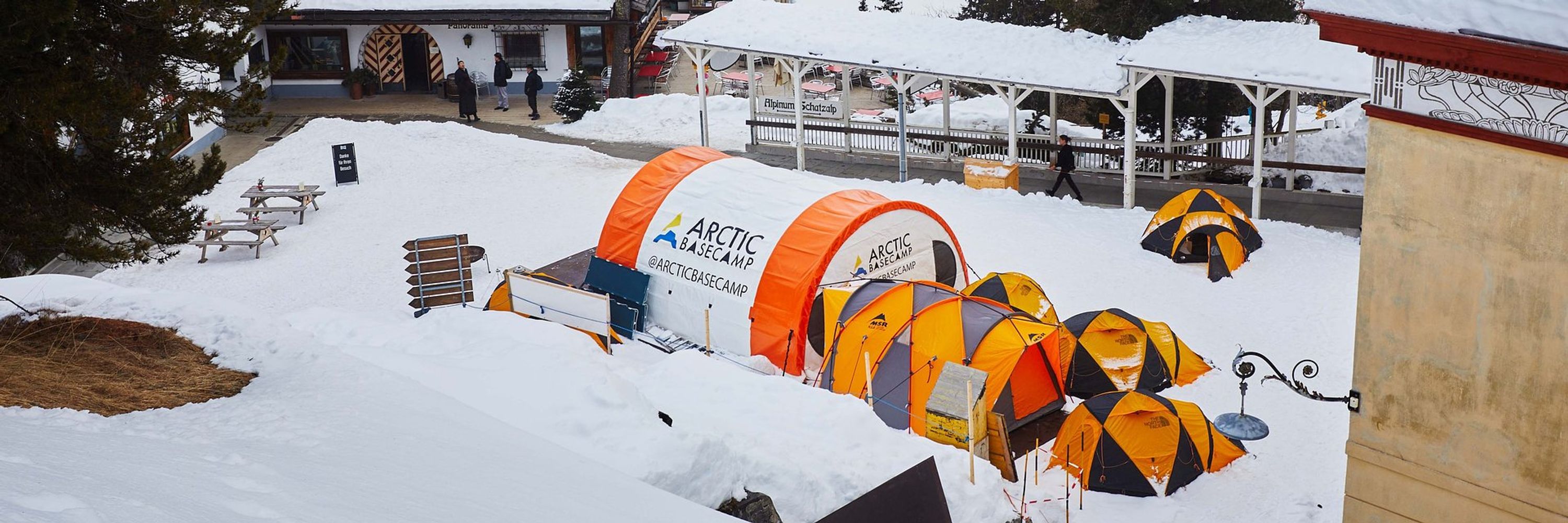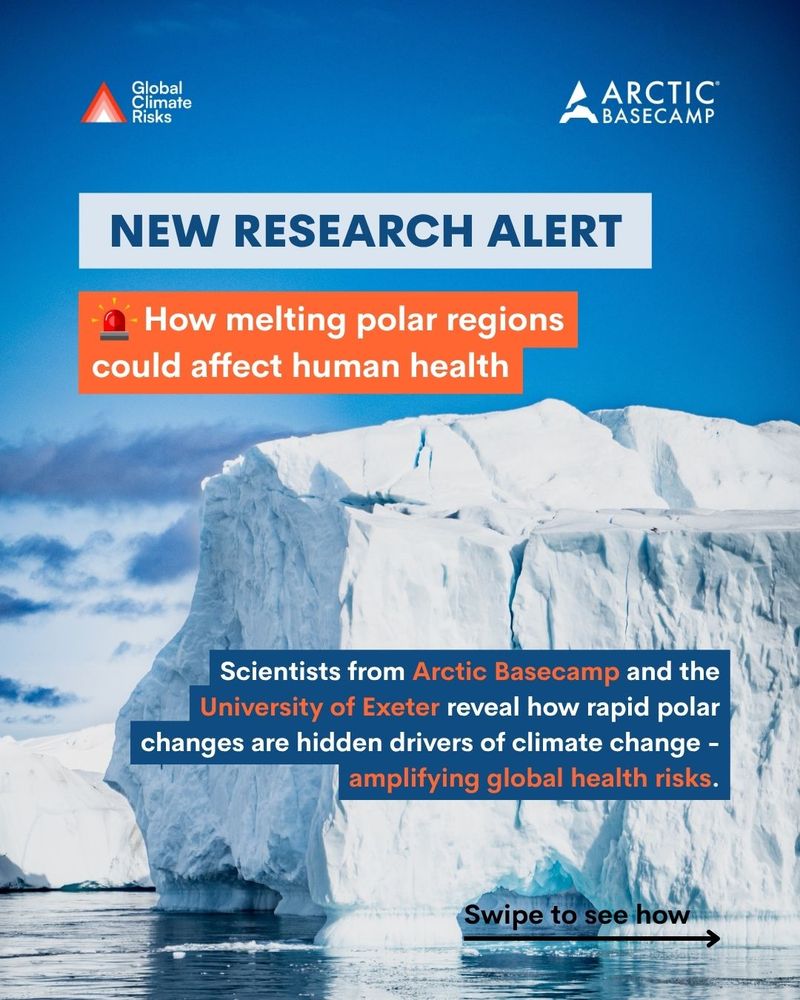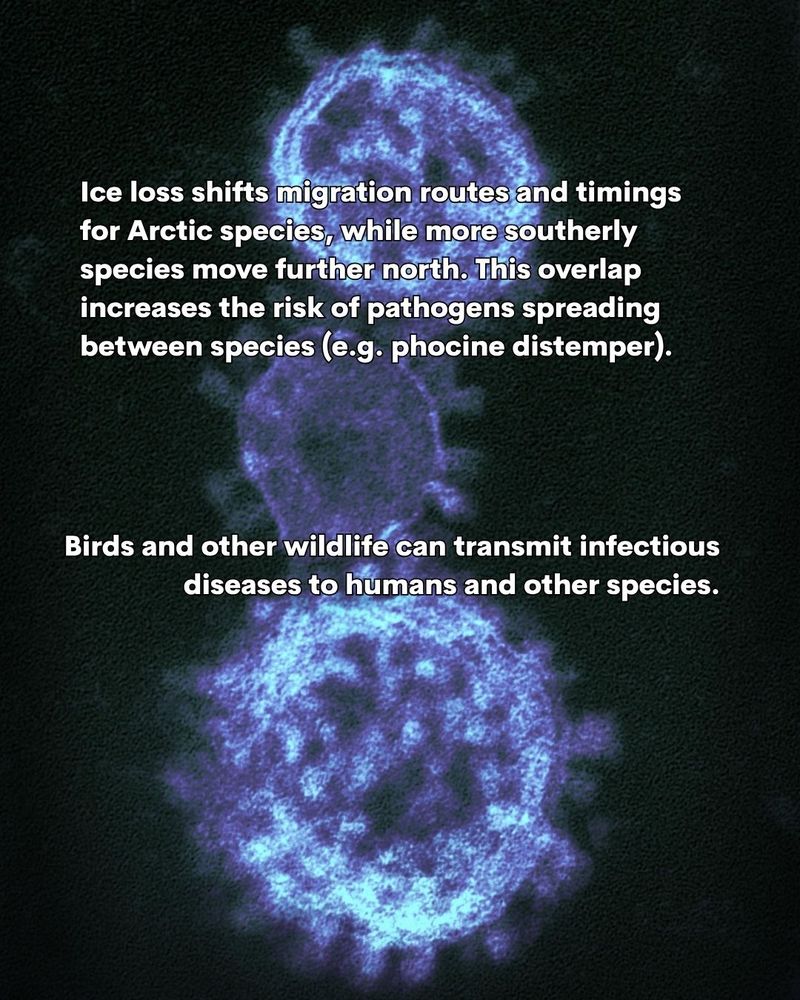
linkin.bio/arcticbasecamp
Cooperation has helped, but emissions keep rising and the window to limit warming is closing fast.
Stay updated on our Global Climate Risks Platform blog!
globalclimaterisks.org/insights/blog/
Cooperation has helped, but emissions keep rising and the window to limit warming is closing fast.
Stay updated on our Global Climate Risks Platform blog!
globalclimaterisks.org/insights/blog/
Today, Arctic scientists are our guiding evidence: we must act immediately and halt the misuse of our atmosphere.
Donate today: shorturl.at/H3j3w
Today, Arctic scientists are our guiding evidence: we must act immediately and halt the misuse of our atmosphere.
Donate today: shorturl.at/H3j3w
Check Climate Risks Daily to see how your community is impacted:
shorturl.at/vGkIp
Check Climate Risks Daily to see how your community is impacted:
shorturl.at/vGkIp
Read more here:
rdcu.be/eQjZL


Read more here:
rdcu.be/eQjZL
See how extreme weather impacts your area at Climate Risks Daily:
shorturl.at/wwoYi

See how extreme weather impacts your area at Climate Risks Daily:
shorturl.at/wwoYi
Read more here:
globalclimaterisks.org/insights/blo...

Read more here:
globalclimaterisks.org/insights/blo...
“Even as the tide rises and falls, the river never reverses its flow.”
Serving as a reminder that no matter how low the tide of climate action may seem, our direction forward musn’t change.
Donate here today!:
whydonate.com/fundraising/...
“Even as the tide rises and falls, the river never reverses its flow.”
Serving as a reminder that no matter how low the tide of climate action may seem, our direction forward musn’t change.
Donate here today!:
whydonate.com/fundraising/...
Scientists warn that Antarctica may be crossing climatic tipping points, with ice loss now nearly six times higher than in the 1990s.
Read the full alert here: globalclimaterisks.org/insights/blo...



Scientists warn that Antarctica may be crossing climatic tipping points, with ice loss now nearly six times higher than in the 1990s.
Read the full alert here: globalclimaterisks.org/insights/blo...
Read more here:
globalclimaterisks.org/insights/blo...


Read more here:
globalclimaterisks.org/insights/blo...
whydonate.com/fundraising/...
whydonate.com/fundraising/...
As the Arctic warms at an average rate of four times faster than the global average, storms once confined to the tropics are now reaching higher latitudes.
As the Arctic warms at an average rate of four times faster than the global average, storms once confined to the tropics are now reaching higher latitudes.
Fear is rational when the threat is real. Apathy is fatal.
Let’s perform hope — and turn fear into action.
#PerformingHope #TheRealScare #ActOnClimate
Fear is rational when the threat is real. Apathy is fatal.
Let’s perform hope — and turn fear into action.
#PerformingHope #TheRealScare #ActOnClimate
Check out our Policy Hub for more!:
globalclimaterisks.org/hubs/policy/

Check out our Policy Hub for more!:
globalclimaterisks.org/hubs/policy/


👉 Donate now to support Arctic Basecamp and empower evidence-based climate action here: whydonate.com/fundraising/...
👉 Donate now to support Arctic Basecamp and empower evidence-based climate action here: whydonate.com/fundraising/...
Local TV still matters for many (18%), but more Americans are turning to online sources for climate information. This shift makes it more important than ever to ensure accurate, evidence-based climate news reaches everyone.

Local TV still matters for many (18%), but more Americans are turning to online sources for climate information. This shift makes it more important than ever to ensure accurate, evidence-based climate news reaches everyone.
Melting polar ice and weakening jet streams are intensifying floods, heatwaves, and wildfires, putting more than 40 million Brazilians at risk from heat stress, water shortages, and disease.
Melting polar ice and weakening jet streams are intensifying floods, heatwaves, and wildfires, putting more than 40 million Brazilians at risk from heat stress, water shortages, and disease.
Help us continue our mission to mitigate these global risks 💙— donate here:
whydonate.com/fundraising/...
Help us continue our mission to mitigate these global risks 💙— donate here:
whydonate.com/fundraising/...
Help us continue our mission to mitigate these global risks 💙— donate here: whydonate.com/fundraising/...
Help us continue our mission to mitigate these global risks 💙— donate here: whydonate.com/fundraising/...



Thank you for following our series. Follow us to stay updated on how you can do your part! @polarbearsinternational.org




Thank you for following our series. Follow us to stay updated on how you can do your part! @polarbearsinternational.org
🌍 Follow us to learn how protecting Arctic ice helps protect us all.
@polarbearsinternational.org
🌍 Follow us to learn how protecting Arctic ice helps protect us all.
@polarbearsinternational.org
Climate change is intensifying food insecurity, as rising temperatures, extreme weather, and shifting rainfall patterns disrupt harvests and threaten food supplies around the world.

Climate change is intensifying food insecurity, as rising temperatures, extreme weather, and shifting rainfall patterns disrupt harvests and threaten food supplies around the world.
In Part 3 of Ask a Polar Scientist, Dr. James Grecian answers Rubina’s questions about how Arctic ice melt drives extreme events across in Nepal.
Follow us to explore more about global climate risks!
@jamesgrecian.com
In Part 3 of Ask a Polar Scientist, Dr. James Grecian answers Rubina’s questions about how Arctic ice melt drives extreme events across in Nepal.
Follow us to explore more about global climate risks!
@jamesgrecian.com
👉 Follow Arctic Basecamp + Polar Bears International to learn how polar change is driving global risk.
@polarbearsinternational.org




👉 Follow Arctic Basecamp + Polar Bears International to learn how polar change is driving global risk.
@polarbearsinternational.org

